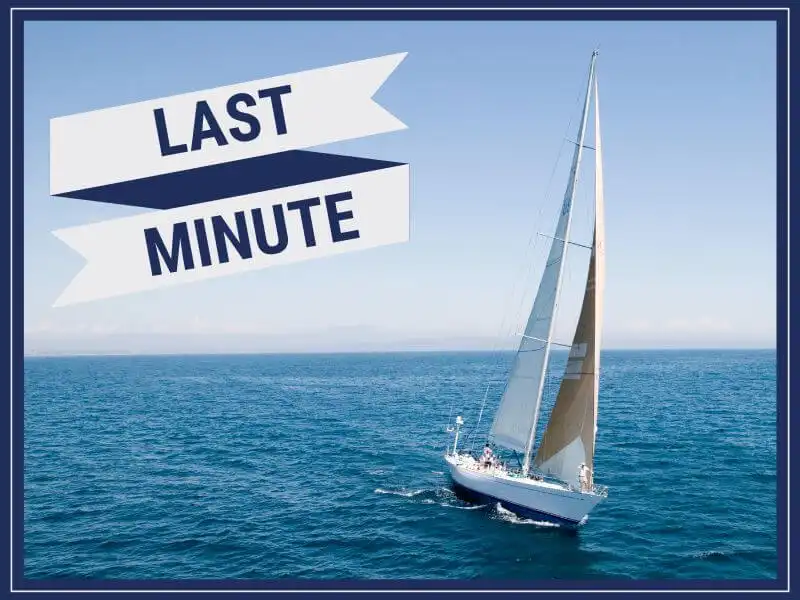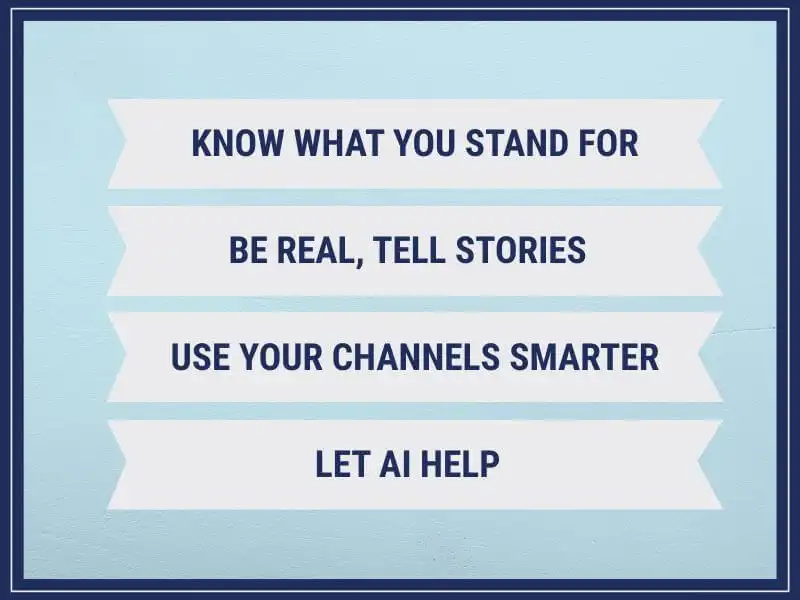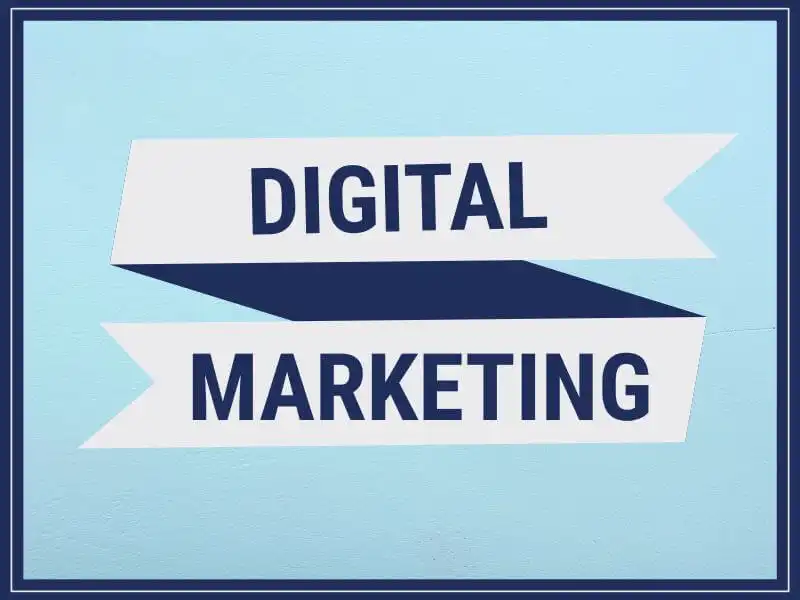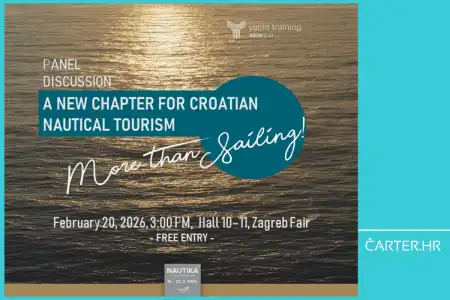
The yacht charter industry in Croatia has fallen into a dangerous spiral of discounting that’s becoming harder to escape. But guests want more than just a low price – they’re looking for value for money and a reason to return. In this article for čarter.hr, Selma Ćubara explains why discounts are no longer effective and what you can do to regain control over your sales.
Stop blindly following the price-cutting trend.
Easier said than done, right? How can you maintain your prices when your closest competitor in the same charter base is generously offering discounts? Then, the second competitor joins in, followed by the third, and soon, everyone else lowers their prices. But the real question is: how long can this last?
Croatian hotels have learned an essential lesson: guests aren't just looking for the lowest price; they want experiences and clear value. Renowned chains like Valamar and Maistra attract visitors by emphasizing quality, memorable experiences, and personalized service, rather than relying on "last-minute" deals. Meanwhile, the charter industry continues to depend on outdated tactics of constantly lowering prices—a model that simply isn’t sustainable in the long run.
What Does History Teach Us?
About twenty years ago, when the author of this article first started in this industry (some would say, back when Gods walked the Earth), the typical charter business discount was an "early booking" discount of 10% to 15%, plus a 5% "ex-client" discount (maximum of 20%), applicable only until the end of the current year. "Last-minute" discounts didn't even exist. After the economic crisis of 2008 and 2009, companies extended early booking discounts through the end of January and began offering additional spring discounts. Today, we've reached the point where discounts of 30% are considered completely normal, yet even these steep reductions don't guarantee full fleet occupancy.

What Does "Last Minute" Actually Mean and When Does It Make Sense?
In global markets, "last minute" refers to limited, special offers available just before service use, typically due to cancellations or unforeseen circumstances. In Croatia, however, this practice has become standard, even though it undermines the value of the service and market in the long term.
Why Discounts Are Dangerous for the Future of Charter
Let’s be honest, discounts feel like a quick fix. But they’re masking a much bigger issue. Right now, the Croatian charter sector is facing too many boats and too few guests. According to the Ministry of Tourism, guest arrivals has dropped by nearly 3% in just two years, while the number of boats is still climbing between 7 - 8% annually, says the Croatian Chamber of Economy. And according to data from OTA’s, what guests really want isn’t a cheaper deal. They want a better, clearer experience.
Unfair pricing and rock-bottom offers from some players are making things worse. When one company starts offering unsustainable prices, others follow whether they can afford to or not. Before you know it, everyone's margins disappear, guests become confused, and quality deteriorates.

How can we change our strategy?
Let’s rethink the strategy:
- Know What You Stand For: What makes your business different? Spell it out. If you clearly communicate why your offer is worth it, you’ll attract guests who aren’t just price-shopping.
- Be Real, Tell Stories: In a sea of sameness, being authentic is your advantage. Share real guest moments. Talk about what people felt, not just what they paid. Relationships start with trust.
- Use Your Channels Smarter: Don’t just be online—be intentional. Show up where your guests hang out. Adapt your tone and content to fit different groups. And track what’s working so you can keep improving.
- Let AI Help: While AI may not be a panacea, it can provide insights that humans cannot. It helps you understand behavior, personalize offers, automate repetitive tasks, predict demand, and improve campaigns.
And while all this is very clear and not some kind of ‘hot water’ invention, brands still do not use these guidelines. Why? First of all, the charter business model relies on an intermediary sales model in more than 90% of cases. Direct clients are a rarity. And this leads to a situation where discounts are used as the only sales tool.
However, what happens when you realize that even the biggest discounts are no longer helping? Then it is clear that it is time for strategic digital marketing, and not for short-term actions that only temporarily fix things. This means that the booking ratio must change in favor of the direct guest.

Digital Marketing Isn’t a Trend - It’s the Standard
Old-school tools like brochures and trade fairs can’t keep up anymore. They still have value, but they’re not enough. Digital marketing puts you in front of the right people, at the right time, with the right message and lets you see what works, instantly.
Instead of shouting to everyone, digital tools let you whisper the right thing to the right person, exactly when they’re listening. That’s the shift: from mass sales to personal connection.
Here’s What Actually Works:
- SEO and Content Marketing – Stop renting space on someone else’s turf. Start creating your own. When guests find helpful, inspiring info on your site, they’re more likely to trust you—and book with you.
- Social Media and Real Stories – Use video, photos, and honest feedback from guests. It builds trust faster than any flashy ad. It shows what sailing with you feels like.
- Email and Automation – A guest books. Now what? Don’t go silent. With automated, thoughtful emails, you stay present during their whole journey—and increase chances they’ll come back.
- Track, Learn, Adapt – Every click tells a story. Every view is a signal. Use those clues to keep fine-tuning your approach—especially in shaky seasons.
The Shift Has Already Happened. Are You In?
Today’s guests aren’t just booking boats. They’re looking for stories, feelings, and reasons to say: "This was worth it." If your only message is "We’re cheaper," you're competing in a race no one wins.
But if you show people why your charter is meaningful, use smart tools, and create memorable experiences - they’ll remember you. And they’ll come back.
Categories of trends
- News
- Sale
- Marketing
- SEO
- Web design
- Social media
- Technology
- Regulations
- Management
- Education
- Finances
- User experience
Newsletter
Sign up for the newsletter and receive the latest trends and tips straight to your inbox





